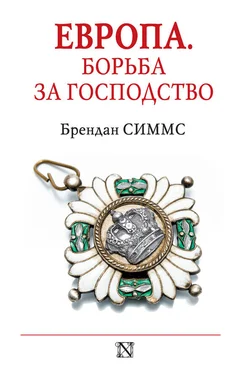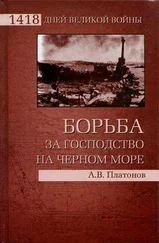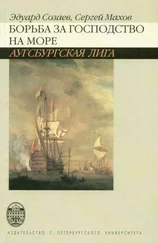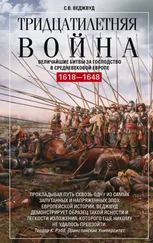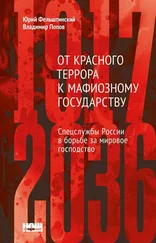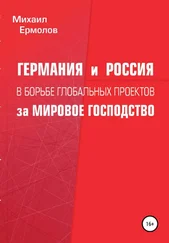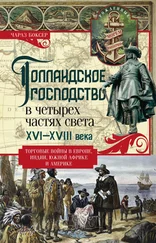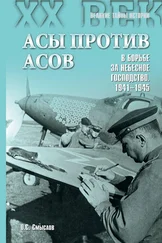Hope M. Harrison, Driving the Soviets up the wall. Soviet-East German relations, 1953–1961 (Princeton, 2005).
Robert Cottrell, ‘L’homme Nikita’, New York Review of Books, 1.5.2003, pp. 32–5 (quotation p. 33).
Tony Judt, ‘On the brink’, New York Review of Books, 15.1.1998, quotation p. 55.
John Lewis Gaddis, We now know. Rethinking Cold War history (Oxford, 1997), p. 277. Также: Aleksandr Fursenko and Timothy Naftali, ‘One hell of a gamble’. Khrushchev, Castro, Kennedy, and the Cuban missile crisis, 1958–1964 (London and New York, 1997).
Hope M. Harrison, Ulbricht and the concrete ‘Rose’. New archival evidence on the dynamics of Soviet-East German relations and the Berlin crisis, 1958–61, Cold War International History Project, Working Paper No. 5 (Washington, DC, 1993), p. 59.
Gregor Peter Schmitz, ‘The day Berlin was divided’, Spiegel International, 30.10.2009: http://www.spiegel.de/international/world/the-day-berlin-was-divided-kennedy-surprised-by-such-strong-american-outrage-to-the-wall-a-658349.html.
Frédéric Bozo, Two strategies for Europe. De Gaulle, the United States, and the Atlantic alliance (Lanham and Boulder, 2001), and Jeffrey Glen Giauque, Grand designs and visions of unity. The Atlantic powers and the reorganization of western Europe, 1955–1963 (Chapel Hill and London, 2002).
Frank Costigliola, ‘The failed design: Kennedy, de Gaulle, and the struggle for Europe’, Diplomatic History, 8, 3 (1984), pp. 227–52.
Matthias Schulz, ‘Integration durch eine europäische Atomstreitmacht? Nuklearambitionen und die deutsche Europa-Initiative vom Herbst 1964’, Vierteljahreshefte für Zeitgeschichte, 53, 2 (2005), p. 286.
Eckart Conze, ‘Hegemonie durch Integration? Die amerikanische Europapolitik und ihre Herausforderung durch de Gaulle’, Vierteljahreshefte für Zeitgeschichte, 43 (1995), pp. 297–340.
Francis J. Gavin, ‘The myth of exible response: United States strategy in Europe during the 1960s’, International History Review, 23, 4 (2001), 847–75, especially pp. 848, 862–5.
ibid., p. 869. Также: Marc Trachtenberg, A constructed peace. The making of the European settlement, 1945–1963 (Princeton, 1999) pp. 382–98; здесь “ядерная неполноценность” ФРГ признается итогом послевоенного урегулирования.
Thomas Alan Schwartz, Lyndon Johnson and Europe. In the shadow of Vietnam (Cambridge, Mass., 2003), p. 44.
Frank Costigiola, ‘The Vietnam War and the challenges to American power in Europe’, in Lloyd C. Gardner and Ted Gittinger (eds.), International perspectives on Vietnam (College Station, Texas, 2000), pp. 146–7 and 151.
Восточная политика ( нем .) . Примеч. ред.
Daniel Kosthorst, ‘Sowjetische Geheimpolitik in Deutschland? Chruschtschow und die Adschubej-Mission 1964’, Vierteljahreshefte für Zeitgeschichte, 44 (1996), pp. 257–94.
Susanna Schrafstetter, Die dritte Atommacht. Britische Nichtverbreitungspolitik im Dienst von Statussicherung und Deutschlandpolitik, 1952–1968 (Munich, 1999), pp. 224, 234–6.
Paul du Quenoy, ‘The role of foreign affairs in the fall of Nikita Khrushchev in October 1964’, International History Review, 25, 2 (2003), pp. 334–56 (quotations pp. 339 and 351), and James G. Richter, Khrushchev’s double bind. International pressures and domestic coalition politics (Baltimore and London, 1994).
R. D. Johnson, All the way with LBJ. The 1964 presidential election (Cambridge, 2009), pp. 77–90 and 124–5. I am very grateful to Andrew Preston for this reference.
Thomas Borstelmann, The Cold War and the color line. American race relations in the global arena (Cambridge, Mass., 2001).
Clifford G. Gaddy, The price of the past. Russia’s struggle with the legacy of a militarized economy (Washington, DC, 1997).
Martin Malia, The Soviet tragedy. A history of socialism in Russia, 1917–1991 (New York, 1994).
James Sheehan, The monopoly of violence. Why Europeans hate going to war (London, 2008).
Thomas A. Schwartz, ‘The de Gaulle challenge: the Johnson administration and the NATO crisis of 1966–1967’, in Helga Haftendorn, Georges-Henri Soutou, Stephen F. Szabo and Samuel F. Wells Jnr (eds.), The strategic triangle. France, Germany, and the United States in the shaping of the new Europe (Baltimore, 2006), p. 133.
Fredrik Logevall, Choosing war. The lost chance for peace and the escalation of war in Vietnam (Berkeley, 1999), especially pp. 375–498.
Mark Atwood Lawrence, Assuming the burden. Europe and the American commitment to war in Vietnam (Berkeley, 2007). Quotation in Costigiola, ‘Vietnam War and the challenges to American power in Europe’, p. 148.
Thomas Alan Schwartz, Lyndon Johnson and Europe. In the shadow of Vietnam (Cambridge, Mass., 2003).
Saki Dockrill, Britain’s retreat from east of Suez. The choice between Europe and the world? (Basingstoke, 2002), pp. 196–7 and 218–19.
Среди прочих мер туристам запретили вывозить из Великобритании более 50 фунтов стерлингов; это ограничение было снято в 1979 г . Примеч. ред.
Helen Parr, ‘Saving the community: the French response to Britain’s second EEC application in 1967’, Cold War History, 6, 4 (2006), pp. 425–54.
Timothy Garton Ash, In Europe’s name. Germany and the divided continent (London, 1993), p. 54.
Frédéric Bozo, ‘Détente versus alliance: France, the United States and the politics of the Harmel Report (1964–1968)’, Contemporary European History, 7, 3 (1998), pp. 343–60.
Carole Fink, Philipp Gassert and Detlef Junker (eds.), 1968. The world transformed (Cambridge, 1998), pp. 8–18 and passim, and R. Gildea, James Mark and Niek Pas, ‘European radicals and the “Third World”: imagined solidarities and radical networks, 1958–73’, Cultural and Social History, 8 (2011), pp. 449–72.
События ( фр .) . Примеч. ред.
Hans Kundnani, Utopia or Auschwitz. Germany’s 1968 generation and the Holocaust (London, 2009), p. 64.
Martin Klimke, The other alliance. Student protest in West Germany and the United States in the global sixties (Princeton, 2010).
Kundnani, Utopia or Auschwitz, pp. 42 and 45.
Американское общественно-политическое движение за предоставление бо́льших прав и возможностей чернокожим . Примеч. ред.
Читать дальше
Конец ознакомительного отрывка
Купить книгу
